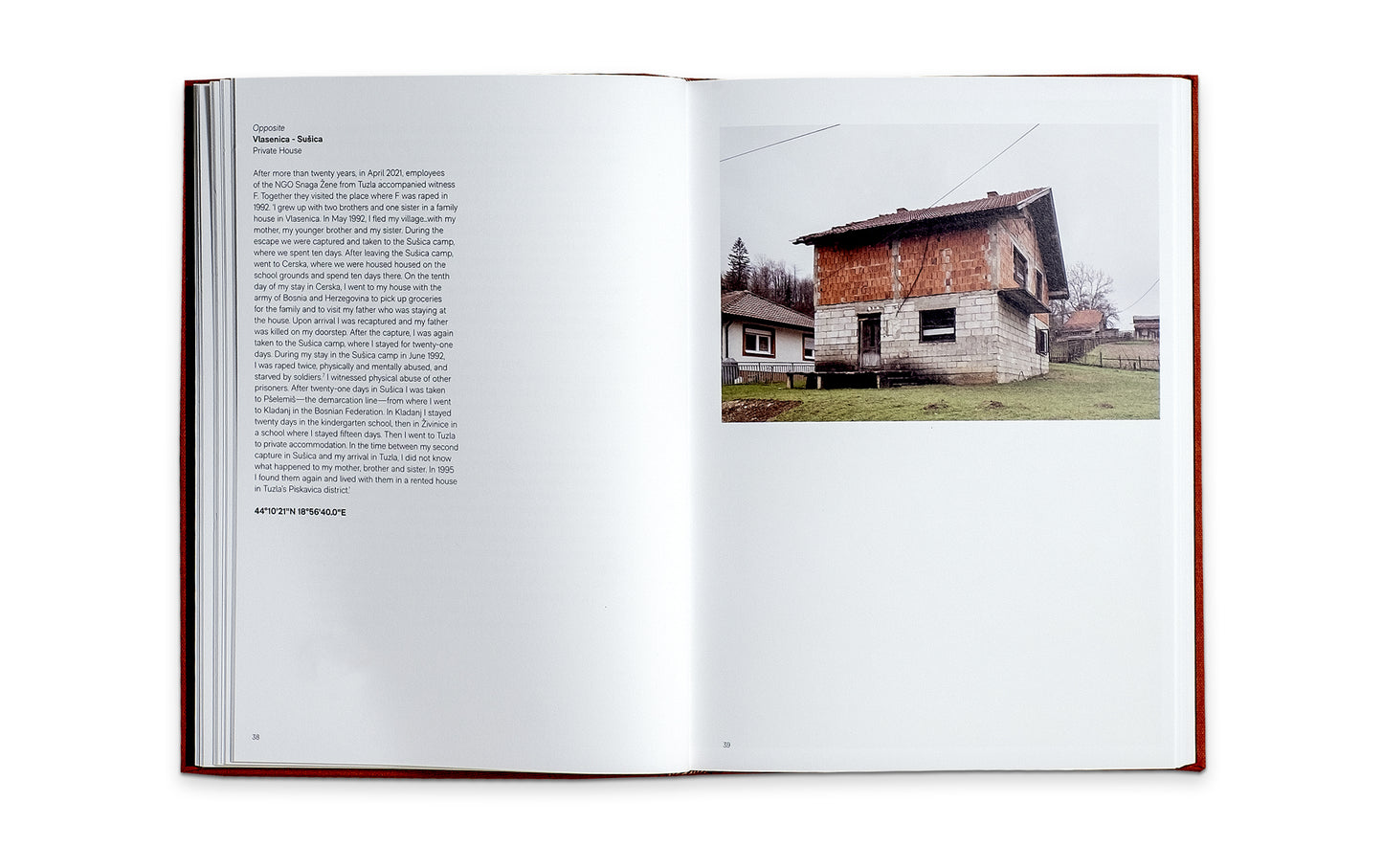Silent Witness (GER)
Silent Witness (GER)
by Cornelia Suhan
Couldn't load pickup availability
‘A war is not over when the weapons are silent.’ - Cornelia Suhan
In Silent Witness photographs of private houses and public buildings in which war crimes—specifically rapes of women of all ethnic groups living in Bosnia and Herzegovina—were committed during the Bosnian War (1992-1995) are combined with testimonies from the women who survived. Cornelia Suhan’s photographs of these buildings— the silent witnesses—allow the stories to be told without exposing those affected to the public again.
More about this book
More about this book
PLEASE NOTE: This is a German language edition
Published March 2024
170 x 234mm protrait
192 pages, 89 images
Hardback
ISBN 978-1-915423-24-5
A donation of 20% of proceeds from sales or pre-orders of the book purchased directly from gostbooks.com will be donated to Vive Žene (https://www.vive-zene.de/)
German Photo Book Award 2024 Silver in Documentary Category
Share








In the press
From the author
-
-
- Cornelia Suhan








